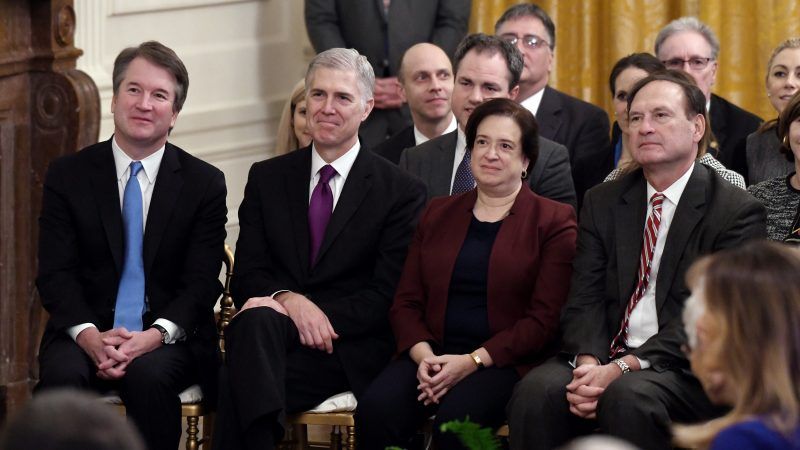The Supreme Court Weighs School Choice and Religious Liberty
What’s at stake in Espinoza v. Montana Department of Revenue

The U.S. Supreme Court heard oral arguments Wednesday in its biggest school choice case in nearly two decades. Judging by the questions raised by the justices, the school choice side seems to have a good chance of emerging the winner.
At issue in Espinoza v. Montana Department of Revenue is a scholarship program the Montana legislature created in 2015 "to provide parental and student choice in education." Individuals and businesses received a tax credit for donating to private, nonprofit scholarship organizations, which then used those donations to fund scholarships at private schools, both secular and religious.
The Montana Supreme Court killed the program in 2018, holding that it violated a provision of the state Constitution that bars the use of public funds "for any sectarian purpose or to aid any church, school, academy, seminary, college, university, or other literary or scientific institution, controlled in whole or in party by any church, sect, or denomination."
The big question before the U.S. Supreme Court this week is whether the state court's judgment conflicts with the U.S. Constitution and its protections against religious discrimination.
Justice Elena Kagan, who repeatedly signaled her support for the Montana Supreme Court's decision, saw no conflict at all. "I guess I am having trouble seeing where the harm in this case is at this point," Kagan said. "Because of the [state] supreme court's ruling, whether you go to a religious school or you go to a secular private school, you're in the same boat at this point." In other words, Kagan declared, "there is no discrimination at this point going on, is there?…The parents of both are affected in the exact same way."
Justice Brett Kavanaugh offered a very different view of the case. "If you're running a scholarship fund," he said, "and there's a group of people lining up for the scholarships, [and you say to them,] are you secular? OK, you can get it. Are you Catholic? No, you're out because you're Catholic." How, Kavanaugh stressed, is that not a constitutional harm?
Chief Justice John Roberts, who likely holds the deciding fifth vote in the case, seemed to be on the same page as Kavanaugh. Let's say the state legislature "built parks and pools," Roberts said, "but if a higher percentage of African Americans come and use the pools, then we're going to shut down the whole program." Wouldn't such a state action be unconstitutional on its face? And if so, "how is that different than [shutting down a program based on] religion, which is also protected under—under the First Amendment?"
A decision in Espinoza v. Montana Department of Revenue is expected by June.
Read the Reason Foundation's friend of the court brief in support of Kendra Espinoza here.


Show Comments (126)